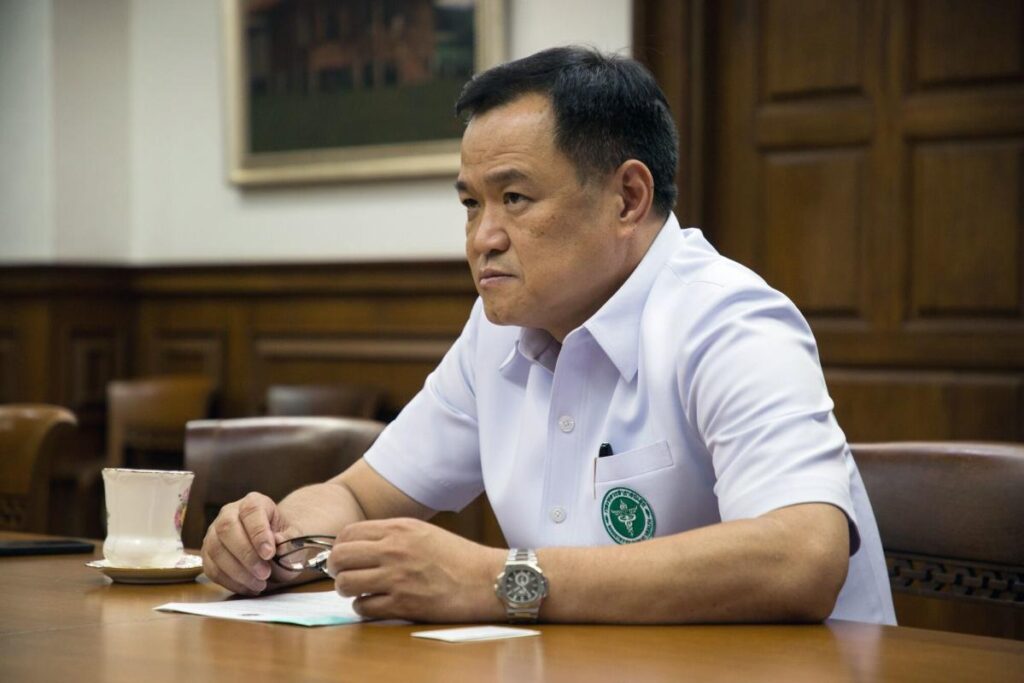(Bloomberg) — Thailand’s plan to reclassify cannabis as a narcotic drug just two years after historic decriminalization sends the wrong message to foreign investors, the second-largest party in the ruling coalition warned.
Most read from Bloomberg
The country should pass a law to regulate the factory instead of completely rolling back the policy. Anutin Charnvirakulthe Interior Minister and leader of the Bhumjaithai Party told reporters in Bangkok on Tuesday evening.
“If the laws in Thailand can continue to change at the whim of the leader, who will invest?” Anutin said. “If Bhumjaithai one day regains control of the Ministry of Health, we will have to decriminalize cannabis again. This will not only affect investors in the cannabis industry, but the entire country.”
Anutin’s public spat with Prime Minister Srettha Thavisin exposes tensions within the troubled governing coalition forged after months of difficult negotiations following a 2023 general election. Srettha’s ruling Pheu Thai Party has promoted a hardline stance on drugs and has cited concerns among many Thais about the proliferation of dispensaries and youth marijuana use as reasons for the policy shift.
Bhumjaithai led the decriminalization movement with Anutin as health minister in the previous military-backed government. He removed cannabis from the country’s drug list in 2022, making Thailand the first country in Asia to decriminalize marijuana.
The warning from Anutin, a former construction magnate, comes amid stock market losses, a weak baht and capital outflows. Spooked by signs of political unrest, foreign investors have pulled more than $3 billion out of local markets this year, pushing Thailand’s benchmark index close to a four-year low and making it one of the worst-performing global bourses tracked by Bloomberg over the past year.
Anutin vowed to vote against the policy change when the country’s Narcotics Control Board, which also includes other ministers, meets later this month to make a final decision on recriminalization.
“I’m going to lose, but I’m going to do it anyway,” he said.
The decriminalization policy, initially presented as a way to boost agricultural income and welfare tourism, helped the Bhumjaithai Party win nearly four million votes, making it the third-largest party in the military-backed government formed after the 2019 election.
But the change also gave rise to a new industry before lawmakers could pass a bill to regulate cannabis, leading to widespread frustration over the legal vacuum that has seen more than 8,000 dispensaries spring up across the country.
The policy U-turn has angered farmers, entrepreneurs and activists, concerned that the move will effectively wipe out one of the few fast-growing parts of Thailand’s economy. They have planned legal action against the prime minister and have taken to the streets to pressure the government to scrap the plan.
Writing Thailand’s Cannabis Future, a leading advocacy group, said Wednesday its members will go on hunger strike until the government reconsiders its plan to recriminalize the country. The group has been camping overnight near Government House since Monday.
“Cannabis is being judged and sent back to prison through no fault of its own,” the group said in a statement. “Our civil disobedience is to show that we want the government to investigate before passing judgment on cannabis.”
Most read from Bloomberg Businessweek
©2024 Bloomberg LP







